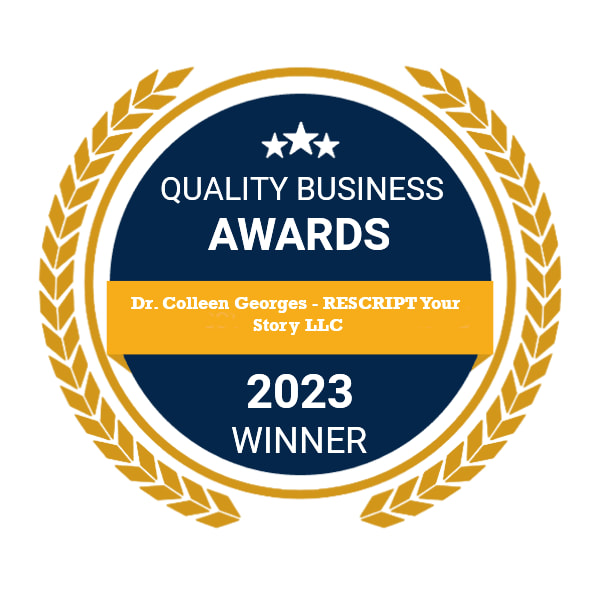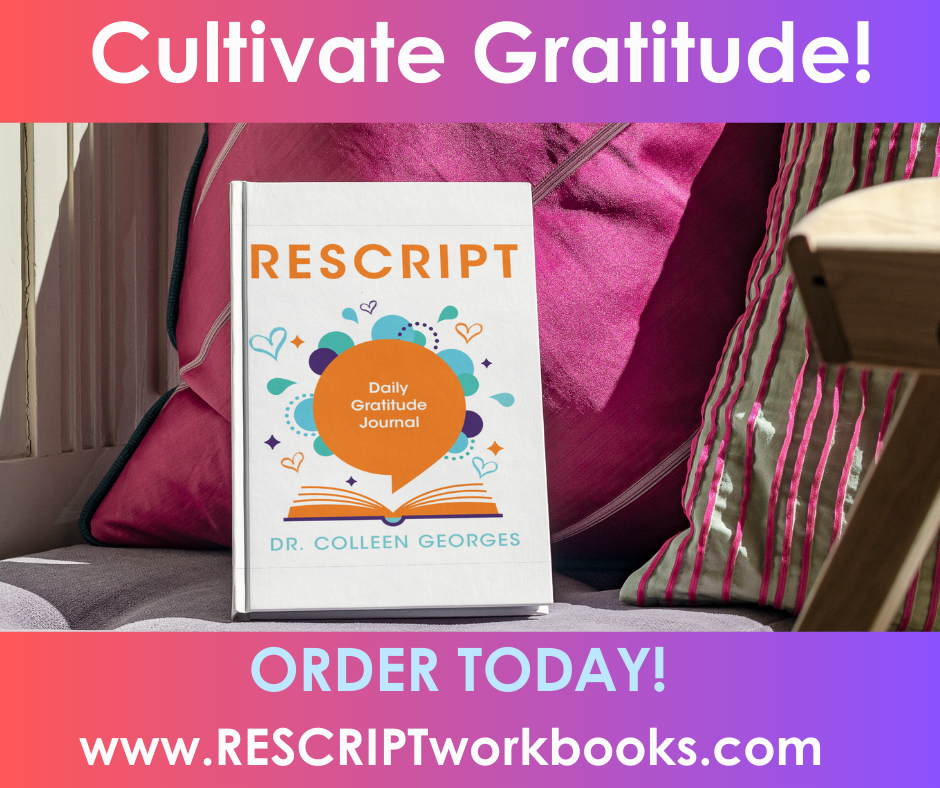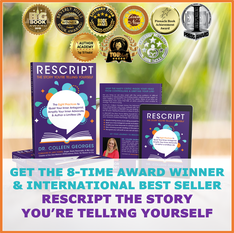|
People often talk about the Sunday night blues (AKA the Sunday scaries); that feeling that comes over you when your weekend in ending and your start thinking about going to work tomorrow morning. Know the feeling? Too many people do.
LinkedIn did a survey in 2018 and found that 80% of professionals start feeling anxiety about the work week on Sundays. Similarly, a study by The Sleep Judge found that these Sunday feelings can manifest as worry, depressive symptoms, difficulty sleeping, and even psychosomatics symptoms like headaches and nausea. And while the ending of the weekend might always be a little bit of a bummer, people who enjoy their jobs don’t have quite the same angst on Sunday nights. Whether you are looking to make a career shift to eradicate those Sunday night blues or you simply want to be more intentional about creating more positive feelings about your current work, we’ll be discussing some strategies. As you may recall from last week’s post, PERMA fosters workplace wellbeing. This week, we are focusing on the P of PERMA – creating Positive Emotions about work. To foster positive emotions (P), begin by asking yourself some questions:
Once you have your responses, jump into action with your first steps. Although your actions will be customized to your needs and your responses to the above questions, there are some things we all can do to help create positive emotions about our work. 1. Maintain healthy physical self-care. This includes getting enough sleep, eat nutritiously and judiciously, getting some physical activity (including work breaks to take a walk around the office building, home office, or outdoors), and using your sick days if you’re sick. We often don’t give enough credence to the impact that taking care of our physical wellbeing has on our emotional and mental wellbeing. They really do go hand in hand. When we take care of our physical wellbeing, we are more refreshed mentally and emotionally to tackle our work projects. 2. Squash negative thinking patterns and replace them with positive ones. In essence, stop crap talking yourself. Speak affirmatively, positively, hopefully, and resiliently to yourself instead. I call this RESCRIPTing. This means:
3. Create better work life balance/time outside of work. Our work is a pretty big chunk of our identity, but it most certainly is not our entire identity. Too much of the time, however, we treat it like it is. We need to nurture all of who we are. Create a personal development plan with goals/desires for other areas of your life outside of work (relationships, financial, living environment, community engagement, physical health, emotional/mental health, intellectual growth, recreation/relaxation, spirituality). When feasible, talk to your boss about creating a flexible schedule that incorporates modified hours or remote working time. Decide a time of day you’ll shut down work on evenings/weekends to do enjoyable things that recharge you. Use your vacation days and spend them doing the things you love with people you love. We talk a lot about creating balance, but often put off the things that would create that balance. There’s never a perfect time free of a project that needs doing. Now is the right time. 4. Create a positive physical work environment. Whether at home or at work, your physical space influences your mental and emotional wellbeing. A cluttered space becomes a cluttered mind. Organize and declutter your office space. Decorate your space in your style. Put up inspiring quotes to motivate you. Make sure that what you see in your workspace inspires a positive mindset and positive emotions. 5. Only make commitments you can keep. It’s easy to become a people pleaser anywhere in life, including at work. We don’t want to let our boss or colleagues down. We worry about people’s opinions of our work ethic. We end up saying yes to projects, committees, and other work commitments that don’t serve our future or our now. Then, we feel overwhelmed and resentful. Don't volunteer for additional work tasks if you don't have time and/or that doesn’t serve your career growth. Create and maintain professional and personal boundaries at work. Remember, when you say “Yes” to too much, it ultimately leads to overwhelm and unhappiness. 6. Keep your mind refreshed. We often push ourselves through work projects when we know we’re exhausted and having a deep difficulty focusing. We tell ourselves, “Just keep going. You gotta get this done. You can rest when you’re finished.” However, the time we spend working in that exhausted frame of mind often produces mediocre work quality. If we just give ourselves some short refresher breakers, we could quickly get back to our work with an awake and focused mind that produces our best. Take some music breaks. Listen to a song you love that gets you pumped. Take brief brain breaks, including resting your eyes for 20 minutes, or meditating, or doing a breathing exercise. Or, laugh! Watch a funny video. Giving your mind brief refreshers during throughout your day can go a long way in keeping the positive feelings flowing and keeping the negative emotions at bay. 7. Do work that engages your strengths and passions. We’ll talk about amplifying work Engagement in depth in the next post! Stay tuned! The Sunday Night Blues are beatable, but it requires regular maintenance. It's not just about what you do on your weekend that matters (although, as I mentioned, doing things you enjoy on the weekends certainly helps!). It's about regularly nurturing your work-related joy, so that work feels good on the regular, thus Sundays ain't so bad at all. Want to really immerse yourself in creating career happiness in your life? Check out my Creating Career Happiness Course!
0 Comments
As a life and career coach, many clients reach out to me because they’ve been pretty unhappy in their careers for a long time (5 years, 10, 20 or more even) and now they’re contemplating making a career change. Everyone’s reasons for why now feels like the right time differs. Sometimes a major life event like a serious illness or loss makes you realize life is too short to be miserable 40+ hours a week, or a new relationship or child shifts your priorities and you want more career joy and balance, or maybe you’ve recently been talking with someone who really loves their work and it makes you realize career joy is a real attainable thing.
Whatever the reasons are, when you make a decision to RESCRIPT your career, it can be both exciting and terrifying. So much possibility, hope, and anticipation. So many unknowns and what ifs. The path from where you are in your career to where you want to be will take assessing, exploration, strategizing, and commitment, but when you ask anyone who’s done it, they’ll tell you its worth every step in the process. The way we make career choices is often heavily influenced by authority figures (parents, teachers), our limited knowledge of what titles exist and carry earning potential, required education (and the time and cost associated), as well as what our connections have access to (when your cousin tells you about a job opening she can hook you up with at her company). These methods don’t always lead to a great fit or genuine career happiness. And the statistics out there support that we need more in depth career decision making practices, because these ones aren’t working so well.
How do you really know if it’s time for a career change? What if what you really need is a new job at a new company? Or just to find ways to boost your career joy where you are? Here’s a model you can use to assess what you might need: When it might be time to leave your current career and explore a new career path:
When it might be time to leave your job/company:
When it might be time to start creating more career joy where you are:
So, what does actually facilitate career wellbeing? Positive psychologists developed a model of overall wellbeing that turns out to translate really well into workplace wellbeing too. This model is called PERMA and it stands for: P – Positive Emotions: Experiencing and sharing positive emotions such as joy, peace, gratitude, satisfaction, inspiration, hope, optimism, and curiosity in the workplace. E – Engagement: Becoming fully immersed in work tasks and projects that leverage your strengths and passions, both individually and as a team. R – Relationships: Creating deeper connections with colleagues, supervisors, and supervisees. Meaningfully collaborating and supporting and caring for one another as team members and as human beings. M – Meaning: Seeing and experiencing the connection of your work to a greater mission and purpose that makes a positive difference for colleagues, the organization, and those the organization serves. A – Achievement: Experiencing a sense of accomplishment in completing tasks and projects that help to achieve short- and long-term individual, team, and larger organizational goals. This sounds great right? So, how can you get the PERMA career hookup? The good news is there are plenty of actions you can begin taking right now to infuse more PERMA into your current job or career, as well as approaches you can engage in to explore and pursue career paths that are a great fit for you. I’ll be writing about each of these strategies in a series of weekly blog posts. For this week, I suggest starting by conducting company research. Most people leave jobs because of other people (challenging bosses, colleagues) or the overall culture of the organization. Decide what you value in a company and workplace and do your due diligence to research which companies fit what you are looking for. Here are some places to begin the company research process:
In the next blog post, I’m going to talk about creating Positive Emotions related to your job and career. Stay tuned! Want to really immerse yourself in creating career happiness in your life? Check out my Creating Career Happiness Course! |
AuthorI'm Dr. Colleen--a person who wants to see people demonstrate self-compassion, confidence, calm, kindness, and create an abundance of joy in their lives and careers. Archives
January 2023
Categories |
|
|
Life Coaching NJ, Life Coach NJ, Career Coaching NJ, Career Coach NJ, Interview Coach NJ, Interview Coaching NJ, Executive Coach NJ, Executive Coaching NJ, Resume Writing NJ, Resume Writers NJ, Anxiety Coach NJ, Anxiety Coaching NJ, Stress Management Coaching NJ, Stress Management Coach NJ, Work-Life Balance Coaching NJ, Work-Life Balance Coach NJ, Communication Coaching NJ, Communication Coach NJ, Women's Empowerment Coaching NJ, Women's Empowerment Coach NJ, Motivational Speaker NJ, Staff Development Training NJ, Organizational Coaching NJ, Group Coaching NJ. Based in NJ. Serving clients virtually nationwide.



 RSS Feed
RSS Feed



